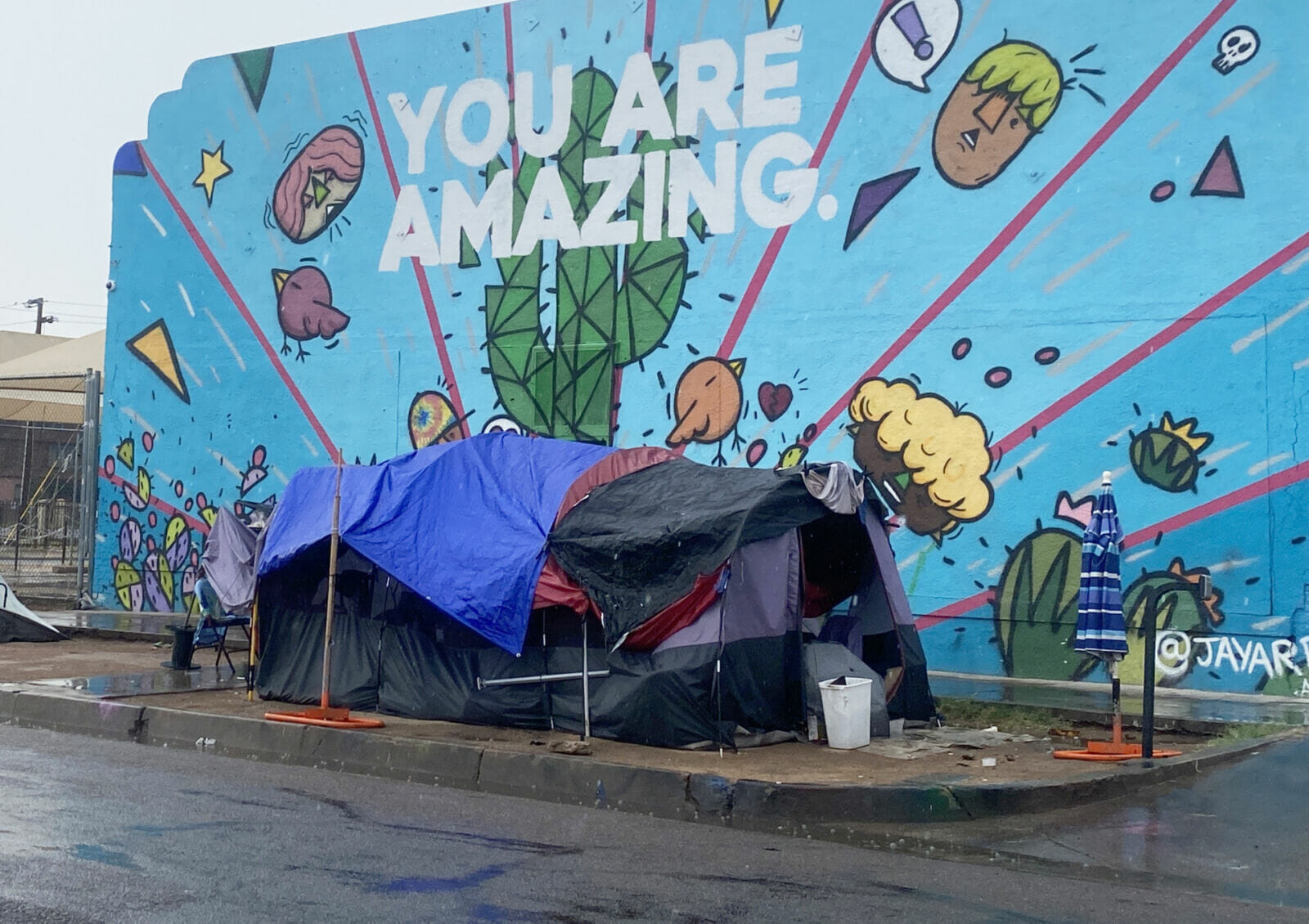Under the radiant sun of Arizona and located on the sidewalks of Downtown Phoenix, an encampment shelters people experiencing homelessness. The homeless sleep in tents, use broken furniture and look for community resources to sustain their basic needs.
“People say it’s a tent city, but there is more to it,” Kayla Bates, in-take specialist at Central Arizona Shelter Services.
Kilyei Fernandez, 22, arrived two weeks ago from Durango, Colorado, because she wanted to attend a 6-month-long spiritual healing program in Phoenix. She could not enroll and became one more unsheltered person in Phoenix.
READ ALSO: Threshold enlists Maricopa County landlords to help solve homelessness
READ ALSO: Arizona looks to establish sanctioned homeless encampments
“The first nights here were difficult because this is not my home,” Fernandez said. “Phoenix is different because it’s a dessert. In Colorado, I was surrounded by nature.”
While she lived in Colorado, Fernandez stayed in a hotel for two months. She met a group of friends she considers her family now. They sponsored her transportation to Phoenix.
“I have tried to look for transportation or funding programs that can sponsor a ticket back to Colorado, but I have not been able to,” Fernandez said. “I hope I can find people who can help me here in Phoenix.”
Homeless encampment in Phoenix grows
More than 800 people live in the tent city that has become one of the biggest homeless encampments in the United States, according to the Human Services Campus officials.
People tend to end up unsheltered for a combination of personal crises, including substance abuse, poverty and lack of affordable housing, mental illness, unemployment, divorce, and domestic violence, as reported by Phoenix Rescue Mission.
The homeless encampment is located next to one of the shelters operated by the CASS, where Fernandez has been able to sleep for a few nights since her one-week arrival. It expands from 9th to 13th avenues between Jefferson and Jackson streets.

CASS is a nonprofit organization that provides temporary housing, food, clothing, hygiene products, mental health services, and showers to unsheltered and lower-income people.
“Even if we can’t do anything for them, we go out of our ways to do the best that we can to figure out ways to better your situation,” said Bates.
CASS provides shelter to at least 600 people and 36 families each night at the Downtown Single Adult Shelter and the Vista Colina Family Shelter, according to its official website.
Homelessness has become a top priority for Phoenix as the numbers have reached an alarming rate in the last years, as reported in the Homeless Strategies Report.
Therefore, almost $20 million was given to the county, state, and non-governmental organizations to fund homelessness solutions and initiatives, according to the Homeless Strategies Report.
At least $4.1 million was given to six nonprofit organizations, including CASS, United Methodist Outreach Ministries, Chicanos Por La Causa, Native American Connections, Southwest Behavioral Health, and Community Bridges Inc. They provide shelter to seniors, women, medically vulnerable individuals, families, single women, unaccompanied minors, and veterans.
More than $1 million in federal awards was granted to CASS, according to its Financial Statements Report.
Beyond the homeless encampment, more than 9,000 people live under different stages of homelessness in Maricopa County, according to the 2022 Point-in-Time Count Report. More than half are unsheltered, and at least 1,000 are children younger than 18.
“If people on the streets don’t have the social support of a family to navigate the housing and mental health system or substance abuse services, we, as a community, need to be that social support system,” said Joan Serviss, executive director at the Arizona Housing Coalition during Arizona’s Housing Crisis event.




